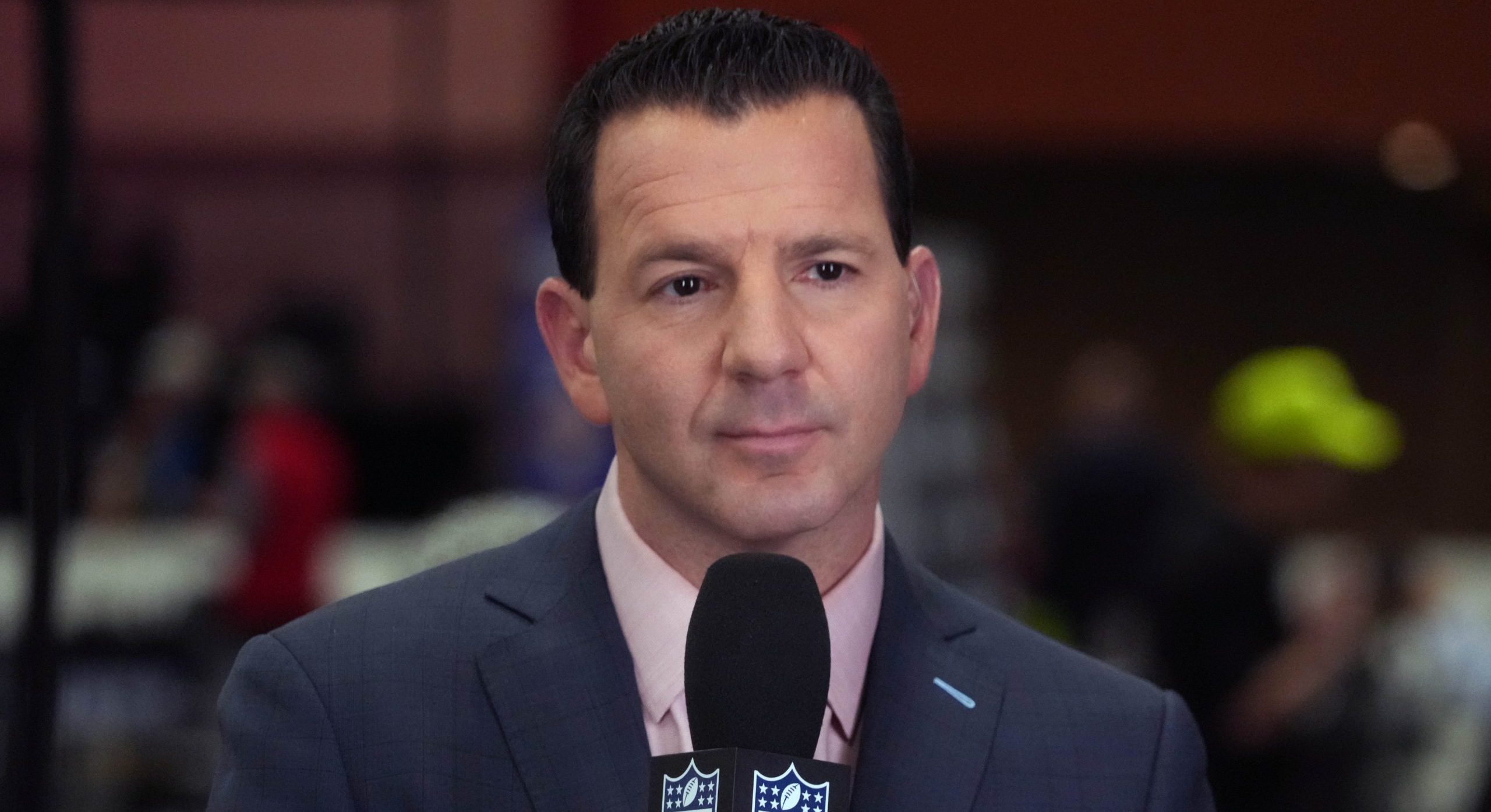

Deion Sanders recently suggested that NFL teams could strategically release negative information about draft prospects they’re interested in, potentially influencing their draft stock.
Sanders made those claims on Front Office Sports Today last week. NFL Network insider Ian Rapoport appeared on that podcast this week, and weighed in on what Sanders had said. Given Rapoport’s established position as a recipient of a lot of leaked information, his perspective carries significant weight. And he said that while what Sanders discussed isn’t out of the realm of possibility, he doesn’t think it’s a common issue.
“That’s to me, that’s sort of like a draft myth, I guess you would say,” Rapoport said. “I do this a lot — like I will go through my phone and basically call everyone I know. I will talk to many, many decision-makers on many, many teams, and I won’t say it has not happened. There’s one example specifically where a team…probably 10 years ago, a team told me that a player had a weakness in his shoulder, hoping that I would say it, hoping that it would get back to everyone else.
“Does it matter? I personally don’t think it matters because teams have all the same information. They have all the same medical information. A lot of teams share medicals. I don’t think it matters, but I would not say it never happens.
“But you know, probably less than the amount of fingers that I have in one hand has it happened to me, where a team leaks negative information. If anything, it’s almost like they’re protective of that information because they don’t want it to get back to them, that they’re killing some player. I think that’s more of a myth than anything else.”
Rapoport said beyond him not experiencing this much himself, he thinks he’d be aware if it was out there with others.
“And if it was going on — I talk to a lot of people — I think it would come to me,” he said. “And I just don’t get the sense that that’s the case, mostly because everything is so transparent now. If there’s character issues on a player, there’s been legal thing or medical, whatever it is, everybody knows.”
He said agents seem to play a bigger role in shaping draft narratives than teams themselves.
“I talk to a lot of agents; a lot of agents of top players, not top players, a lot of them,” Rapoport explained. “They can be helpful. They can tell you where a player’s going and what teams are interested. The really good ones who have been doing this for a long time have a sense of where their player is going before the draft.
“So, sometimes they will tell you if you have a good relationship with them and you really trust them, they’ll tell you, ‘Hey, here’s the window.’ Or they’ll say, like, I remember there was a quarterback who I think a lot of people thought was going to the first round and did not end up going. I talked to his agent the day before the draft, and he was literally like, ‘I don’t have a spot for him. I’m nervous.
“He did not end up going in the first round. Agents can be very helpful. It’s just important to know that they represent their players. They are acting in the best interest of their players. So, they will always tell you what’s gonna happen to their players, usually with the best-case scenario.
“I don’t think there’s a lot of misinformation from agents. I think they are just naturally representing their players…I don’t get a lot of lies; I’ll get a lot of like, ‘You don’t have the right information, go talk to more teams.’”
With the 2024 NFL Draft kicking off in less than a week, Sanders’ comments about teams potentially leaking negative stories take on added intrigue. We already admidst a media cycle that’s seen several draft prospects face a flurry of negative media attention.
With that, Rapoport’s role in reporting on the Draft makes his perspective as someone who often receives information from teams and agents particularly notable in this context.




